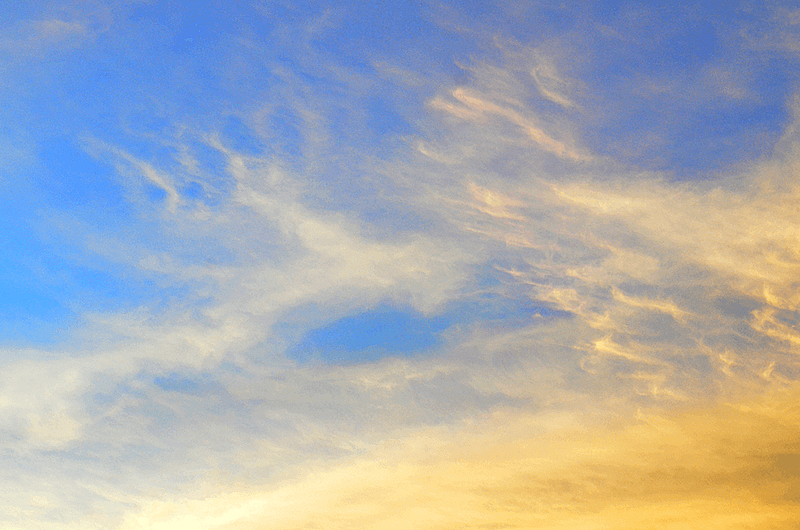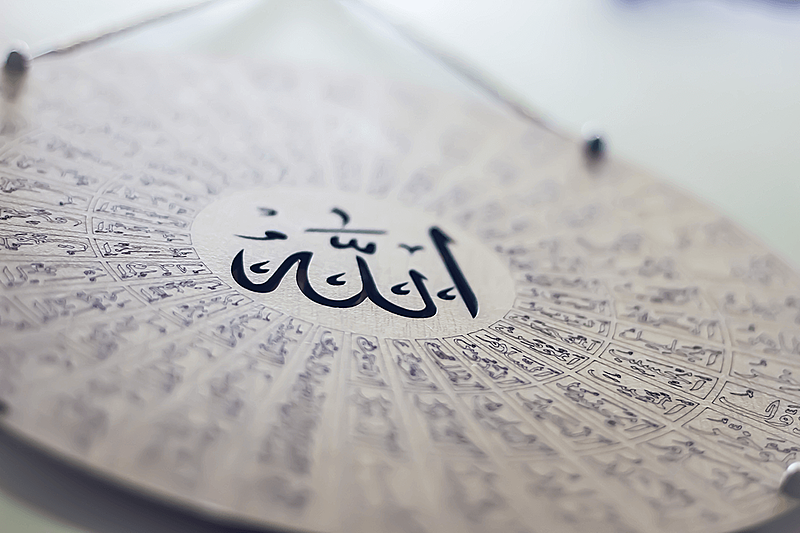The Power of Dua in Islam
Find out about the definition, merits, blessed times and etiquettes of Dua along, with other helpful information.
THE POWER OF DUA
Definition and Merits of Dua
Dua (pronounced Du‘ā) literally means a request, invocation or supplication. According to al-Khattābī, Dua is the asking of a servant for his Lord for help and for His continued support. It is a form of ‘Ibadah (worship) and Zikrullah (remembrance of Allah).
There are numerous Dua with various purposes in the Qur’an and Sunnah of the Prophet s.a.w. We are highly encouraged to recite these Dua from both sources for our benefits in both worlds. Also, we can personalise our Dua by making it in our own words and in a language we are comfortable with for better contemplation. Even if our expressions in the Dua may sound opaque or not well organized, Allah s.w.t. knows best of our thoughts and intentions.

Merits of Dua
1. Dua is a reminder of Allah’s closeness to His servants
وَإِذَا سَأَلَكَ عِبَادِي عَنِّي فَإِنِّي قَرِيبٌ أُجِيبُ دَعْوَةَ الدَّاعِ إِذَا دَعَانِ فَلْيَسْتَجِيبُوا لِي وَلْيُؤْمِنُوا بِي لَعَلَّهُمْ يَرْشُدُونَ
“And when My slaves ask you (O Muhammad s.a.w.) concerning Me, then (answer them), I am indeed near (to them by My Knowledge). I respond to the invocations of the supplicant when he calls on Me (without any mediator or intercessor). So let them obey Me and believe in Me, so that they may be on the right path.”
(Surah Al-Baqarah, 2:186)
2. Dua keeps us humble
By making Dua, we admit that we, being His flawed servants, are in dire need of His help. Thus, admitting such dependency helps overcome pride and arrogance. The Prophet s.a.w. said,
مَنْ لَمْ يَسْأَلِ اللَّهَ يغضبْ عَلَيْهِ
“God will be angry with those who do not make requests from Him.”
(Sunan At-Tirmizi)
Al-Mubārakfūrī—author of Tuhfat al-Aḥwazī, the explanation of the aḥadīth narrated by Tirmizi—said: It is because not asking (making Dua) is arrogance and an expression of self-sufficiency, and these attributes are not permissible for a servant.
3. Allah s.w.t. will answer Dua and remove difficulties of those in distress
He says in the Qur’an,
أَمَّنْ يُجِيْبُ الْمُضْطَرَّ إِذَا دَعَاهُ وَيَكْشِفُ السُّوْءَ
“Is it not He Who responds to the distressed one, when he calls on Him, and Who removes the evil.”
(Surah An-Naml, 27:62)
This Quranic verse illustrates the benefit of making Dua in general. Despite that, some exceptional cases should be brought to our attention. Some Dua may not be immediately or completely granted by Allah s.w.t. And He may eventually bestow with something else that is even better. And some Dua may not be answered at all for some reason. This is due to the fact that Allah s.w.t. is Al-Ḥakīm (All-Wise) and Al-‘Alīm (All-Knowing) about what is best for His servants. What we think is good for us could be otherwise in reality, and vice versa.
The Blessed Times for Dua
As we earnestly hope to have our Dua answered, look out for these best times known as Sā‘at al-Ijābah or al-Istijābah (Times of answered prayers), so that Allah s.w.t. may fulfil our prayers the best way possible:
1. In the depths of the night
The Prophet s.a.w. said,
يَنْزِلُ رَبُّنَا تَبَارَكَ وَتَعَالَى كُلَّ لَيْلَةٍ إِلَى السَّمَاءِ الدُّنْيَا حِينَ يَبْقَى ثُلُثُ اللَّيْلِ الآخِرُ يَقُولُ مَنْ يَدْعُونِي فَأَسْتَجِيبَ لَهُ مَنْ يَسْأَلُنِي فَأُعْطِيَهُ مَنْ يَسْتَغْفِرُنِي فَأَغْفِرَ لَهُ
“Our Lord, the Blessed and the Exalted, descends every night to the lowest heaven when one-third of the latter part of the night is left and says: Who supplicates Me so that I may answer him? Who asks Me so that I may give to him? Who asks Me forgiveness so that I may forgive him?”
(Sahih Muslim)
2. Before saying Salām in a prayer
According to the hadith reported by Abu Umamah r.a,
قِيلَ يَا رَسُولَ اللَّهِ أَىُّ الدُّعَاءِ أَسْمَعُ قَالَ " جَوْفُ اللَّيْلِ الآخِرُ وَدُبُرَ الصَّلَوَاتِ الْمَكْتُوبَاتِ
It was said, “O Messenger of Allah, which Dua is heard?” He said, “In the last third of the night, and following every prescribed prayer.”
(Sunan At-Tirmizi)
In interpreting dabr al-salawāt al-maktūbah (following the prescribed prayers) some scholars are of the view that it is before the Salām. Ibn Taymiyah said, “The word dabrrefers to something that is part of a thing, like dabr al-hayawān (the hindquarters of an animal).”
3. Between the Azān and the Iqāmah
The Prophet s.a.w. said,
الدُّعَاءُ لَا يُرَدُّ بَيْنَ الْأَذَانِ وَالْإِقَامَةِ
“A Dua offered between the Azān and Iqāmah is not rejected.”
(Sunan At-Tirmizi)
4. Saying Dua during free time and in good health regularly
The Prophet s.a.w. said,
مَنْ سَرَّهُ أَنْ يَسْتَجِيبَ اللَّهُ لَهُ عِنْدَ الشَّدَائِدِ فَلْيُكْثِرِ الدُّعَاءَ فِي الرَّخَاءِ
“If anyone finds pleasure in receiving an answer from God in times of difficulty, he should make many supplications when times are easy.”
(Sunan At-Tirmizi)
In his book Tuhfat al-Ahwazī, al-Mubārakfūrī explained that al-rakhā’ (when times are easy) means good health and free time.
5. Between ‘Asar and Maghrib on Fridays.
The Prophet s.a.w. said,
يَوْمُ الْجُمُعَةِ اثْنَتَا عَشْرَةَ سَاعَةً لاَ يُوجَدُ فِيهَا عَبْدٌ مُسْلِمٌ يَسْأَلُ اللَّهَ شَيْئًا إِلاَّ آتَاهُ إِيَّاهُ فَالْتَمِسُوهَا آخِرَ سَاعَةٍ بَعْدَ الْعَصْ
“Friday consists of twelve hours. There is one in which a Muslim who asks Allah for something will have it granted to him. Seek it in the last hour after ‘Asar.”
(Sunan An-Nasa’i)

6. Between two khutbahs of a Friday prayer
Abu Hurairah r.a. reported that the Messenger of Allah s.a.w. said while talking about the merits of Friday,
"فيها ساعة لا يوافقها عبد مسلم، وهو قائم يصلي يسأل الله شيئًا، إلا أعطاه إياه" وأشار بيده يقللها
“There is a time on Friday at which a Muslim, while he is performing a prayer and is supplicating, will be granted whatever he (or she) is supplicating for.” And he pointed with his hand to indicate that this period of time is very short.
(Sahih Al-Bukhari and Muslim)
7. During Sujūd in a prayer
The Prophet s.a.w said,
أَقْرَبُ مَا يَكُونُ الْعَبْدُ مِنْ رَبِّهِ وَهُوَ سَاجِدٌ فَأَكْثِرُوا الدُّعَاءَ
“The nearest a slave can be to his Lord (Allāh) is while doing sujūd, so increase in supplication”
(Ṣaḥīḥ Muslim)
8. While drinking the water of Zamzam
The Prophet s.a.w. said,
مَاءُ زَمْزَمَ لِمَا شُرِبَ لَهُ
“The water of Zamzam is for whatever it is drunk for.”
(Sunan Ibn Majah)
9. During Ramadan—especially before breaking fast, on the last ten days, and the Laylat al-Qadr (Night of Power)
Ramadan, as the best month of all, is filled with great blessings when a servant does good deeds that include ‘ibādah in the form of Dua. The Prophet s.a.w. said,
ثَلاَثَةٌ لاَ تُرَدُّ دَعْوَتُهُمُ الصَّائِمُ حَتَّى يُفْطِرَ وَالإِمَامُ الْعَادِلُ وَدَعْوَةُ الْمَظْلُومِ يَرْفَعُهَا اللَّهُ فَوْقَ الْغَمَامِ وَيَفْتَحُ لَهَا أَبْوَابَ السَّمَاءِ وَيَقُولُ الرَّبُّ وَعِزَّتِي لأَنْصُرَنَّكَ وَلَوْ بَعْدَ حِينٍ
“There are three people whose Dua is not rejected; the fasting person until he breaks the fast, the just ruler, and the oppressed person, whose Dua Allah lifts above the clouds and opens unto it the doors of Jannah, and Allah says: “I swear by My Honour, verily I shall assist you, even though it may be after some time.”
(Sunan At-Tirmizi)
And as the last ten nights of Ramadan are deemed the best nights of all in a year, it is therefore greatly encouraged to say Dua during those nights. Regarding Laylatul Qadr, ‘Aishah r.a. said: I asked the Messenger of Allah: O Messenger of Allah, if I realize Laylatul Qadr, what should I supplicate in it? He said, “Say:
اَللَّهُمَّ إِنَّكَ عَفُوٌّ تُحِبُّ الْعَفْوَ فَاعْفُ عَنِّيْ
"O Allah, You are pardoning and You love to pardon, so pardon me"
(Sunan At-Tirmizi)
10. At times of adversity
Allah s.w.t. says in the Qur’an:
وَذَا ٱلنُّونِ إِذ ذَّهَبَ مُغَـٰضِبًا فَظَنَّ أَن لَّن نَّقدِرَ عَلَيهِ فَنَادَىٰ فِى ٱلظُّلُمَـٰتِ أَن لَّا إِلَـٰهَ إِلَّا أَنتَ سُبحَـٰنَكَ إِنِّى كنتُ مِنَ ٱلظَّـٰلِمِينَ. فَٱستَجَبنَا لَهُ ۥ وَنَجَّينَـٰهُ مِنَ ٱلغَمِّ وَكَذَٲلِكَ نُنجِى ٱلمُؤمِنِينَ.
And (remember) Zun-Nūn (Prophet Yūnus a.s.), when he went off in anger and imagined that We shall not punish him (i.e. the calamities which had befallen him)! But he cried through the darkness (saying): None has the right to be worshipped but You (O Allah), Glorified (and Exalted) are You. Truly, I have been of the wrong-doers. So We answered his call and delivered him from distress. And thus We do deliver the believers (who believe in the Oneness of Allâh, abstain from evil and work righteousness).
(Surah Al-Anbiya’, 21:87-88)

11. While performing hajj, on the first ten days of Zulhijjah and on the day of Arafah
The Prophet s.a.w. said,
مَا مِنْ أَيَّامٍ الْعَمَلُ الصَّالِحُ فِيهَا أَحَبُّ إِلَى اللَّهِ مِنْ هَذِهِ الأَيَّامِ
“There are no days during which the righteous deeds are more beloved to Allah s.w.t. than these (first ten) days (of Zulhijjah).”
(Sunan Ibn Majah)
And in another hadith, he said,
خَيرُ الدُّعَاءِ دُعَاء يَوم عَرَفَة
“The best of Dua is Dua on the day of ‘Arafah.”
(Sunan At-Tirmizi)
Etiquettes in Dua
There are etiquettes (ādāb) that should be observed so that our Dua will be offered in a proper manner in hopes that they will be granted. Some of these are as follows:
1. Be sincere
Having Ikhlāṣ (sincerity) is a prerequisite of the acceptance of Dua. Allah s.w.t. says in the Qur’an,
وَمَا أُمِرُوْا إِلَّا لِيَعْبُدُوا اللهَ مُخْلِصِيْنَ لَهُ الدِّيْن حُنَفَاء
“And they were commanded not, but that they should worship Allah, and worship none but Him Alone (abstaining from ascribing partners to Him).”
(Surah Al-Bayyinah,98:5)
2. Glorify and praise Allah s.w.t., and recite Selawāt (salutations) upon the Prophet
The Prophet s.a.w. said,
إِذَا صَلَّى أَحَدُكُمْ فَلْيَبْدَأْ بِتَحْمِيدِ اللَّهِ وَالثَّنَاءِ عَلَيْهِ ثُمَّ لْيُصَلِّ عَلَى النَّبِيِّ صَلَّى اللَّهُ عَلَيْهِ وَسَلَّمَ ثُمَّ لْيَدْعُ بَعْدُ بِمَا شَاءَ
“When any of you prays, he should begin with the glorification of his Lord and praise Him; he should then invoke blessings on the Prophet s.a.w; thereafter he should supplicate Allah for anything he wishes.”
(Sunan At-Tirmizi)
3. Include Allah’s glorified names
Seek to learn and understand His glorified names. There will always be at least one name that is apt for what we are asking for in our Dua. Allah s.w.t. says in the Qur’an,
وَلِلَّهِ ٱلأَسمَاءُ ٱلحُسنَىٰ فَٱدعُوهُ بها وَذَرُواْ ٱلَّذِينَ يُلحِدُونَ فِى أَسمَاهِۦۚ سَيُجزَونَ مَا كَانُواْ يَعمَلُونَ
“And (all) the Most Beautiful Names belong to Allah, so call on Him by them, and leave the company of those who believe or deny (or utter impious speech against) His Names. They will be requited for what they used to do.”
(Surah Al-A‘raf, 7:180)

Things that Hinder the Acceptance of Dua
Nothing worries more than not having our Dua granted especially when our lives are at stake. Therefore, it is imperative to learn the reasons why our Dua is not being answered as below:
1. Engaging in unlawful activities
The Prophet s.a.w. said,
"إِنَّ اللَّهَ طَيِّبٌ لاَ يَقْبَلُ إِلاَّ طَيِّبًا وَإِنَّ اللَّهَ أَمَرَ الْمُؤْمِنِينَ بِمَا أَمَرَ بِهِ الْمُرْسَلِينَ فَقَالَ (يَا أَيُّهَا الرُّسُلُ كُلُوا مِنَ الطَّيِّبَاتِ وَاعْمَلُوا صَالِحًا إِنِّي بِمَا تَعْمَلُونَ عَلِيمٌ) وَقَالَ (يَا أَيُّهَا الَّذِينَ آمَنُوا كُلُوا مِنْ طَيِّبَاتِ مَا رَزَقْنَاكُمْ" . ثُمَّ ذَكَرَ الرَّجُلَ يُطِيلُ السَّفَرَ أَشْعَثَ أَغْبَرَ يَمُدُّ يَدَيْهِ إِلَى السَّمَاءِ يَا رَبِّ يَا رَبِّ وَمَطْعَمُهُ حَرَامٌ وَمَشْرَبُهُ حَرَامٌ وَمَلْبَسُهُ حَرَامٌ وَغُذِيَ بِالْحَرَامِ فَأَنَّى يُسْتَجَابُ لِذَلِكَ
“God is good and accepts only what is good, and He has given the same command to the believers as He has given to the Messengers, saying, “O Messengers, eat of what is good and act righteously” (Al-Mukminun, 23:51) and also, “O You who believe, eat of the good things which We have provided for you” (Al-Baqarah, 2:172). Then he (the Prophet) mentioned about a man who makes a long journey in a dishevelled and dusty state, who stretches out his hands to heaven saying, “My Lord, my Lord,” when his food, drink and clothing are of an unlawful nature, and he is nourished by what is unlawful, how then can his supplication be accepted?
(Sahih Muslim)
Despite the committed sins, individuals who erred should not lose hope in Allah s.w.t. and thus, establish Tawbah (repentance) and gradually improve themselves with what is made obligatory and other good deeds. Allah s.w.t. affirms His mercy for the wrong-doers,
قُل يَـٰعِبَادِىَ ٱلَّذِينَ أَسرَفُواْ عَلَىٰ أَنفُسِهِم لَا تَقنَطُواْ مِن رَّحمَةِ ٱللَّهِ إِنَّ ٱللَّهَ يَغفِرُ ٱلذُّنُوبَ جَمِيعًا إِنَّهُ ۥ هُوَ ٱلغَفُورُ ٱلرَّحِيم
“Say (O Prophet, that Allah s.w.t. says), “O My servants who have exceeded the limits against their souls! Do not lose hope in Allah’s mercy, for Allah certainly forgives all sins. He is indeed the All-Forgiving, Most Merciful.”
(Surah Az-Zumar, 39:53)
2. Making inappropriate Dua and showing a lack of patience and conviction
Making Dua for something against the Islamic principles will result in not having the Dua to be answered. The Prophet s.a.w. said,
لَا يَزَالُ يُسْتَجَابُ لِلْعَبْدِ مَا لَمْ يَدْعُ بِإِثْمٍ أَوْ قَطِيعَةِ رَحِمٍ مَا لَمْ يَسْتَعْجِلْ. قِيلَ يَا رَسُولَ اللَّهِ مَا الِاسْتِعْجَالُ. قَالَ يَقُولُ قَدْ دَعَوْتُ وَقَدْ دَعَوْتُ فَلَمْ أَرَ يَسْتَجِيبُ لِي فَيَسْتَحْسِرُ عِنْدَ ذَلِكَ وَيَدَعُ الدُّعَاءَ
“The servant will continue to have his supplications answered as long as he does not ask for a sin or cutting of ties and he is not impatient.” They said, “O Messenger of Allah, what is its impatience?” The Prophet said, “He says: I have supplicated again and again, but I have not seen an answer. He becomes frustrated with that and gives up supplicating.”
(Sahih Muslim)
Making Effort While Praying for the Best
As much as Muslims are encouraged to make Dua, they should also put in the effort to help realise their wishes, before leaving the outcome to Allah s.w.t. Effort should be made due diligence based on the individual's capacity. It may also require one to review themselves from time to time for better results, as part of the effort altogether.
In fact, the true meaning of Tawakkul comprises both effort and reliance, unlike Tawākul which includes only the latter. The following Quranic verse serves as a general guideline to ensuring one exerts himself for self-improvement:
إنَّ اللهَ لا يُغَيِّرُ مَا بِقَوْمٍ حَتَّى يُغَيِّرُوا مَا بِأَنْفُسِهِمْ
“Verily! Allah will not change the condition of a people as long as they do not change their state themselves.”
(Surah Ar-Ra’d, 13:11)
The Prophet s.a.w. taught us to establish effort accordingly, as reported by Anas ibn Malik r.a. that a man said,
يَا رَسُولَ اللَّهِ أَعْقِلُهَا وَأَتَوَكَّلُ أَوْ أُطْلِقُهَا وَأَتَوَكَّلُ قَالَ صَلَّى اللَّهُ عَلَيْهِ وَسَلَّمَ اعْقِلْهَا وَتَوَكَّلْ
“O Messenger of Allah! Shall I tie it (camel) and rely (upon Allah), or leave it loose and rely (upon Allah)?” He said, “Tie it and rely (upon Allah).”
(Sunan At-Tirmizi)
What If the Outcome is Different Than What We Prayed for?
As servants of Allah the Benevolent, our responsibility is to do our due diligence in the form of Dua, effort and reliance on Him to meet our wishes. Nevertheless, we must have unwavering faith in Allah s.w.t. as His infinite knowledge is way beyond ours, and it includes the predestination of all things.
Our belief will signify husn al-zan (good opinion) towards Him for whatever result, good or bad, that may come eventually. Allah s.w.t. says in the Qur’an meaning,
وَعَسَىٰٓ أَن تَكْرَهُوا۟ شَيْـًٔا وَهُوَ خَيْرٌ لَّكُمْ ۖ وَعَسَىٰٓ أَن تُحِبُّوا۟ شَيْـًٔا وَهُوَ شَرٌّ لَّكُمْ ۗ وَٱللَّهُ يَعْلَمُ وَأَنتُمْ لَا تَعْلَمُونَ
“Though you dislike it, and it may be that you dislike a thing which is good for you and that you like a thing which is bad for you. Allah knows but you do not know.”
(Surah Al-Baqarah, 2:216)
The Prophet s.a.w. illustrated how Allah s.w.t. fulfils one’s Dua,
ما مِنْ مُسلِمٍ يَدْعو بدعوةٍ ليسَ فيها إثمٌ ولا قطيعةُ رَحِمٍ إلَّا أعطاهُ اللهُ إِحْدى ثلاثٍ: إمَّا أنْ يُعَجِّلَ لهُ دعوتَهُ، وإمَّا أنْ يدَّخِرَها لهُ في الآخِرةِ، وإمَّا أنْ يصرِفَ عنهُ مِنَ السُّوءِ مِثْلَها. قالوا: إذًا نُكثِرُ. قال: اللهُ أكثرُ.
“Any Muslim who makes a supplication containing nothing which is sinful or which involves breaking ties of relationship will be given for it by God one of three things: He will give him a speedy answer, or store it up for him in the next world, or turn away from him an equivalent amount of evil.” Those who heard it said, “We would then make many supplications.” And the Prophet s.a.w. replied, “Allah is more ready to answer than they were to ask.”
(Musnad Ahmad)
Allah s.w.t. employs various approaches to address the Dua of His servants as He knows what is best for each of them, and how His blessings will affect them, positively or otherwise at any point in their lives. For instance, if we make Dua to be blessed with an abundance of worldly wealth, Allah s.w.t. knows how it will impact us in the short and long terms.
Although we have observed all the etiquettes while making this Dua, Allah s.w.t. may not grant it immediately as it may corrupt us out of greed. Thus, He may fulfil it at a later time when we are more ready spiritually and morally to hold the responsibility of bearing great wealth.
And Allah knows best.
Check out Muslim.Sg's dua collection.


No comments:
Post a Comment